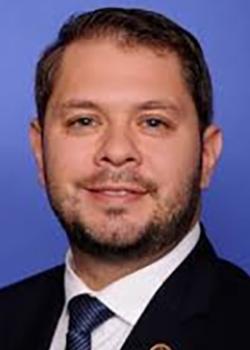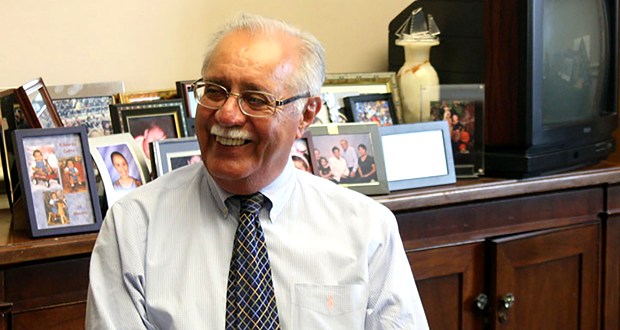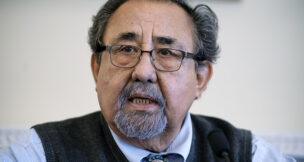Immigration jeopardizes Obama’s ‘Win the West’ strategy
Jeremy Duda//June 1, 2010//

Barack Obama’s repeated forays into John McCain’s home state surrounding the 2008 presidential election illustrated the Democratic Party’s commitment to gaining control of Western states with growing populations and independent streaks. But that “Win the West” strategy may be in jeopardy — at least in Arizona — now that President Obama and congressional Democrats have taken an unpopular position on the most dominant issue in state politics: immigration.
Obama visited Arizona three times during his campaign, building on the Democratic Party’s long-term plans to pull it toward the center and eventually turn it into a swing state. He came back twice after taking office, including once to launch a major policy initiative, and he plucked Gov. Janet Napolitano, a rising Democratic star, to head the U.S. Department of Homeland Security.
Despite the attentive courtship, though, Arizona voters appear to be even less receptive to Obama’s ideas than they were during the 2008 presidential election when McCain eked out an unimpressive victory in his home state.
Last month, when Obama called Arizona’s new immigration law “misguided,” he may have permanently damaged his image in a state that his party has targeted for years. Polling shows most people nationwide support the law, but it’s even more popular in Arizona, where a politician’s position on illegal immigration can make the difference between winning and losing an election.
“My guess is about 65 to 70 percent of the people in Arizona support 1070, and they don’t like people criticizing it. Particularly, it gives them more ammunition to be against somebody they don’t like anyway in the case of Obama. There’s no question it hurts him in Arizona,” said Bruce Merrill, who runs the Cronkite/Eight poll.
The damage is at least partly self-inflicted. By bringing Napolitano to Washington, D.C., Obama effectively replaced her with a Republican who was willing to sign bills such as S1070 that Napolitano almost certainly would have vetoed. Napolitano vetoed a record number of bills from the Republican-controlled Legislature, including about a half-dozen bills similar to S1070.
Gov. Jan Brewer, who has gone on a nationwide media blitzkrieg to defend the immigration law, has used Obama’s opposition to S1070 to her advantage. Her polling has risen since signing S1070 on April 23, which followed a boost she got from joining a lawsuit against Obama’s signature health care law in March.
Obama’s approval ratings have been dropping nationally for most of the past year. Gallup’s daily tracking poll shows him with a 47 percent approval rating and a 45 percent disapproval rating after posting a 50 percent approval rating just two months ago.
But he may be worse off in Arizona, where there is strong opposition to the federal health care law and overwhelming support for just about any law that cracks down on illegal immigration.
WIN THE WEST
Republicans are expected to make sizeable gains in the 2010 midterms, and any perception that Obama is weak on immigration could drag down Arizona’s vulnerable House Democrats, as well as the party’s presumptive gubernatorial nominee. And if illegal immigration stays in the spotlight past November, Democrats could see the inroads they’ve made into Arizona rolled back.
That’s not the scenario national Democrats envisioned back in 2008 when they chose Denver to host the national convention. In fact, Democratic Party Chairman Howard Dean explained the choice by saying, “If we are going to have a national party, we are going to have to have Westerners vote Democratic again on a reliable basis.”
The Western-states strategy yielded Obama victories in Colorado, Nevada and New Mexico. Arizona, though, was considered out of reach because McCain was the Republican nominee. Nonetheless, McCain won his home state by a narrower-than-expected margin of 9 percentage points.
“I’m just guessing … Obama would have carried us if Mitt Romney was the candidate,” said Patrick Kenney, a political science professor at Arizona State University.
Kenney said Democrats’ Western strategy was designed to counter the party’s fading influence in Southern states such as Arkansas, Louisiana and Tennessee. As the West experienced a sustained population boom over the past two or three decades, their importance in the Electoral College has grown as well.
“They’re working hard to replace that voting bloc right there with some combination of the Southwest,” Kenney said.
Registered Republicans outnumber Democrats in Arizona by about 100,000, but more than 900,000 voters are registered as independents, which significantly shrinks the GOP’s advantage in the Grand Canyon State, according to Fred Solop, who heads Northern Arizona University’s political science department.
Arizona voted for Bill Clinton in the 1996 presidential race — the only time the state has given its electoral votes to a Democrat since 1948 — and elected Democrat Napolitano in 2002 and 2006.
“I think we’re moving toward being in play in presidential politics,” Solop said.
Mike O’Neil, who runs the polling firm O’Neil Associates, said Democrats finally put their Western states plan into action in 2008, after eyeing the region for years.
“It was probably the first demonstration a Democrat can win here. Then the second question is can a Democrat win here when it matters?” O’Neil said. “We’re still a state that the Republican wins by default. The Democrats have to take it. They don’t get it handed to them.”
TIME WILL TELL
Obama’s popularity in Arizona may be falling, but fortunately for the president, that likely won’t matter if he can bring his numbers back up in time for 2012.
Some of the energy behind the anti-illegal immigration movement may dissipate if Obama can push through a comprehensive immigration reform package that includes a greater investment in border security.
Pollster Earl de Berge, of the firm Behavior Research Center, said Obama’s recent decision to send 1,200 National Guard troops to the border may already give voters the impression that something is being done.
“Many people are going to come to the conclusion that that issue is being dealt with, which allows them to then move on,” de Berge said.
Solop said Obama’s National Guard deployment was clearly motivated by Arizona’s immigration law and the increased demand for border security.
“Without 1070 and without the immigration agenda being fired up again we wouldn’t see movement at the national level,” Solop said. “It seems to me the president’s trying to really avoid the immigration issue prior to the congressional elections. At the same time, he has to respond. There’s a lot of demand that the national government step in and do something.”
Pollsters said Obama may be able to avoid his most recent pressure point in 2012 if immigration and border security become less prominent than traditionally weighty issues like the economy and national security.
“It’s two years away. Will immigration still be that same issue?” said Rick Herrera, a political science professor at Arizona State University. “In terms of swing voters, I don’t think that’s the issue that motivates them.”
It’s possible the Republican strategy to use immigration against Obama and congressional Democrats could backfire.
Franklin Gilliam, a political science professor at the University of California-Los Angeles, said the GOP still hasn’t recovered from Proposition 187, a harsh illegal immigration law passed by California voters in 1994.
The proposition won an overwhelming 18-point victory at the polls. But Gilliam said the law, which was later overturned in federal court, mobilized Hispanic voters and pushed them into the Democrats’ camp. A Republican presidential candidate hasn’t won California since, and Republican Gov. Arnold Schwarzenegger has spoken out against S1070.
With Hispanics making up 30 percent of Arizona’s population — Hispanics make up nearly 37 percent in California — Republicans run the same risk, though voter registration numbers in Arizona are significantly more favorable to the GOP.
“I think you will ultimately see politicization of the Latino community, which has not been very politicized,” Gilliam said. “It could be a trigger. We’ll see. But it certainly has been a trigger in the rest of the country.”


















